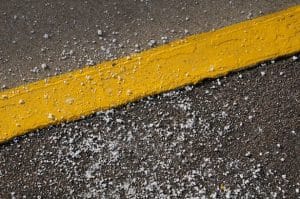
It’s easy to assume that dogs will get along just fine, whatever the weather, whatever time of year it is, but wintertime presents some extra special challenges for our four-legged friends and responsible owners, that’s all of you by the way, need to be on the lookout for seasonal hazards. Before winter is fully upon us, it’s probably a good idea to check out exactly what your pet insurance covers and ensure you’re getting the best deal for your budget. Make sure your pet stays healthy by learning about the following possible hazards:
- Hypothermia
When you go out during winter, you wrap up, you’ve probably got a hat on your head and something waterproof on your feet; most of our dogs go out just as they would in summer. Hypothermia is insidious, it happens slowly and if a dog is out in the cold for a long time it can start to take hold. It can lead to frostbite, heart and kidney problems and even death. The easiest way to prevent hypothermia is to ensure that your dog is never outside for prolonged periods if the temperatures are very low. Susceptibility to hypothermia will depend on the dog’s breed, size and age but if your dog is continually shivering, lethargic, has trouble walking or breathing, has dilated pupils and is cold to the touch you should be concerned. If your dog is cold and wet, you should towel dry it, provide it with a blanket, hot water bottle and warm fluids and if you are concerned, contact your vet.
- Antifreeze
Antifreeze is unfortunately a common form of canine poisoning during winter. As little as 8ml is sufficient to poison a dog. Antifreeze is often splashed around near cars in winter or used to clear paths or keep toilets from freezing. It seems to be particularly appealing to dogs and they will lap it up in a flash. Be vigilant during icy weather, don’t let your dog wander about near parked cars and keep them away from conspicuously ice-free paths. Symptoms of ingestion are excessive urination, vomiting, seizures and delirium. If you suspect your dog has had contact with antifreeze, contact your vet immediately.
- Rock Salt
Rock salt is a particularly tricky winter hazard because you may find that there is a lot of it around, whilst it is unlikely to prove fatal to your dog, it can cause serious distress. In prolonged contact with a dog’s paws, rock salt will burn the skin and when the dog comes back into a warm house this can be exacerbated. Always wash your dog’s paws thoroughly after returning from a walk. If ingested, rock salt will burn your dog’s mouth and digestive tract and could cause dehydration, seizures and liver failure.
- Christmas hazards
Dogs pick up on the excitement of Christmas and it’s easy to sit back and enjoy them having fun, but again, there are hazards to watch out for. If your dog is playing with the Christmas tree tinsel, take it away, you’ll need a visit to the vet if it’s swallowed. Chocolate, mince pies, poinsettia, mistletoe, holly and even Christmas trees are all bad for dogs if ingested, so keep an eye on them when they are around decorations.
Dogs pick up on the excitement of Christmas and it’s easy to sit back and enjoy them having fun, but again, there are hazards to watch out for. If your dog is playing with the Christmas tree tinsel, take it away, you’ll need a visit to the vet if it’s swallowed. Chocolate, mince pies, poinsettia, mistletoe, holly and even Christmas trees are all bad for dogs if ingested, so keep an eye on them when they are around decorations.
Related Articles

